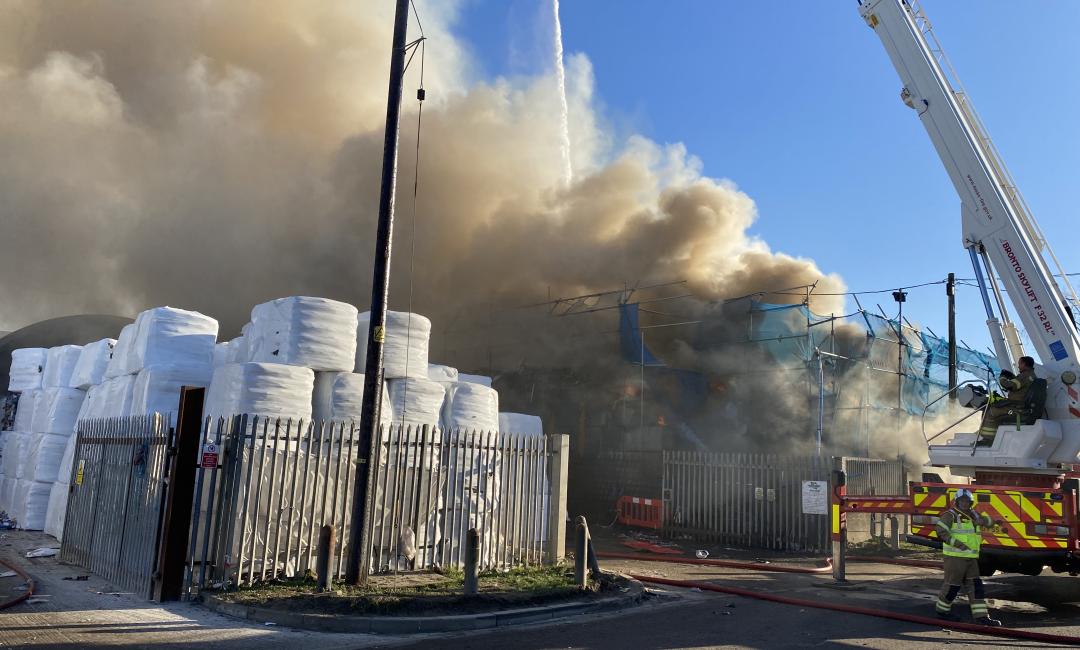The rise of lithium-ion battery risks in businesses: fire safety strategies every business needs

Rechargeable technology has transformed how we work. From e-bikes and power tools to laptops and large-scale energy storage systems, lithium-ion batteries are now central to modern business operations. But with this reliance comes an urgent and growing concern: the risk of fire and explosion caused by damaged, overcharged, or improperly stored batteries. These aren’t distant or theoretical risks - they’re happening right here in Essex:
1. Great Notley warehouse fire (September 2023)
In the early hours of September 17, 2023, a significant fire erupted in a commercial mobility equipment retailer warehouse in Great Notley. The blaze originated in an area storing used lithium-ion batteries, leading to the building becoming completely smoke-logged. Over 50 firefighters were deployed to tackle the fire, which proved challenging due to the involvement of lithium-ion batteries in thermal runaway. The incident caused extensive damage and forced the business to temporarily close its headquarters and warehouse.
2. Thurrock Battery Energy Storage Site BESS fire (February 2025)
On February 19, 2025, a fire broke out at an under-construction BESS project in Thurrock, Essex. The fire, which lasted three days and took over 200 firefighters to put out, highlighted the potential risks associated with large-scale battery storage facilities and the need for stringent safety measures during the construction and operation of such sites.
These examples are a clear warning: battery-related fires are on the rise and can severely disrupt business operations.
Your legal responsibilities
As a business owner, you have a legal duty under the Regulatory Reform (Fire Safety) Order 2005 to:
- Conduct regular fire risk assessments
- Identify and mitigate against all hazards, including those related to battery misuse
- Ensure staff are trained in emergency procedures.
With the increasing prevalence of lithium-ion batteries in various sectors, it’s imperative for business owners to stay updated on evolving fire safety regulations and best practice. Failing to address emerging risks, such as battery fires can lead to legal consequences, reputational damage, and serious harm to your staff or property.
Protecting your business
Steps you can take to prevent serious incident. Here’s what we recommend for every business:
- Ensure that your Fire Risk Assessment is up to date: incorporate potential hazards associated with lithium-ion batteries.
- Designate safe charging areas: ensure these zones are well-ventilated, equipped with appropriate signage, and regularly monitored.
- Proper storage: where possible, look to store batteries in fire-resistant containers or cabinets when not in use.
- Staff training: Educate employees on safe charging practices, recognising battery faults, and emergency response.
- Install appropriate fire extinguishing systems: where possible, consider manual and/or fixed systems suitable for fires involving batteries. You should seek the advice of a competent person in identifying what would be best suited to your business.
In the event of a battery-related fire:
- Evacuate immediately: Ensure all occupants leave the area promptly, and do not return until deemed safe to do so
- Do not move or touch a smoking, swollen, or damaged battery.
- Call 999 and inform the operator about the potential involvement of lithium-ion batteries
Lithium-ion batteries are here to stay, but the fire risks they pose should never be underestimated. Whether you run a workshop, office, retail store, or logistics centre, now is the time to take stock of your fire safety procedures. Don’t wait for an emergency to act. Review your Fire Risk Assessment, update your policies, train your staff, and act now.


